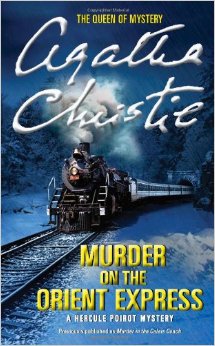by Susan Rogers Cooper
I'm knee-deep in the newest E.J. Pugh novel. Unfortunately, I should be
at least hip deep, if not tickling-my-tummy deep. Why is it that,
now that I'm retired from everything but writing (outside jobs,
motherhood and wifedom) that it's taking longer and longer to write a
book? Well, there's always the “hey, I'm retired, I can do it
tomorrow” syndrome, wherein tomorrow keeps getting further and
further away. And there's also the “I don't have to write X number
of pages today.
I can catch up tomorrow.” See above about tomorrow. And this
summer it's been “the grand kids are coming by in four hours. I
really need to rest up” excuse. But with E.J., I'm getting there.
Slowly, but I'll make it. I always – okay, usually
– do. But then there's the big problem, the one where I'm going to
need some help. I'm told this is call crowd sourcing.
I DON'T HAVE A TITLE.
If I give you a quick synopsis with pertinent points can you make a
suggestion? Here's the deal. It's taking place on the University of
Texas campus. E.J.'s twenty-year-old son finds his obnoxious,
much-despised (by everyone) roommate dead in the room – stabbed to
death while Graham (E.J.'s son) slept. Guess who becomes the chief
suspect? We have other wanna-be suspects, too, of course. The
roommate's less than loving mother; his ex-girlfriend who keyed his
car twice and sent him Ex-Lax brownies; his BFF whom he belittled in
front of the friend's parents; and the roommate's student adviser
whose wife the roommate came on to rather aggressively at a party.
Are ideas flooding in? I usually don't have trouble with titles, but this one is giving me a run for my money. Do I want to name it something to do with UT? Campus life? Or just murder in general?
I DON'T KNOW!
As incentive for your cooperation the winner (or the one person who
actually gives me a title, any title) gets a copy of the book when it
comes out. I'm thrilled, are you? Is my sarcasm showing?
A woman in my apartment complex was recently told by another woman that I had thirty-some-odd (some very odd) books published. The woman looked at me and said, “Then why are you living here?”
Yes, it was a very rude question, but I only laughed it off. I didn't explain that there are only four people who actually become millionaires writing books, and only eight who actually make a livable wage doing it. I didn't explain the “claw” theory – the one that writing success is based on the machine you see in restaurant lobbies full of stuffed animals and you have to get that big old claw to grab on to the one you want – or any one for that matter – and it never does. Success is that claw, and somebody gets pulled up every million or so tries.
So the rest of us just keep writing. Why? Well, I don't know about
you, but I do it because if I didn't there would be something very
big missing in my life. I once said that if I didn't do this for a
living, I'd probably write really great grocery lists. Well, I don't
want to write really great grocery lists. I want to write stories.
I want to make people ask questions, get anxious, and, sometimes,
laugh their butts off. But still and all, I need a title.
Any title will do. Really.


